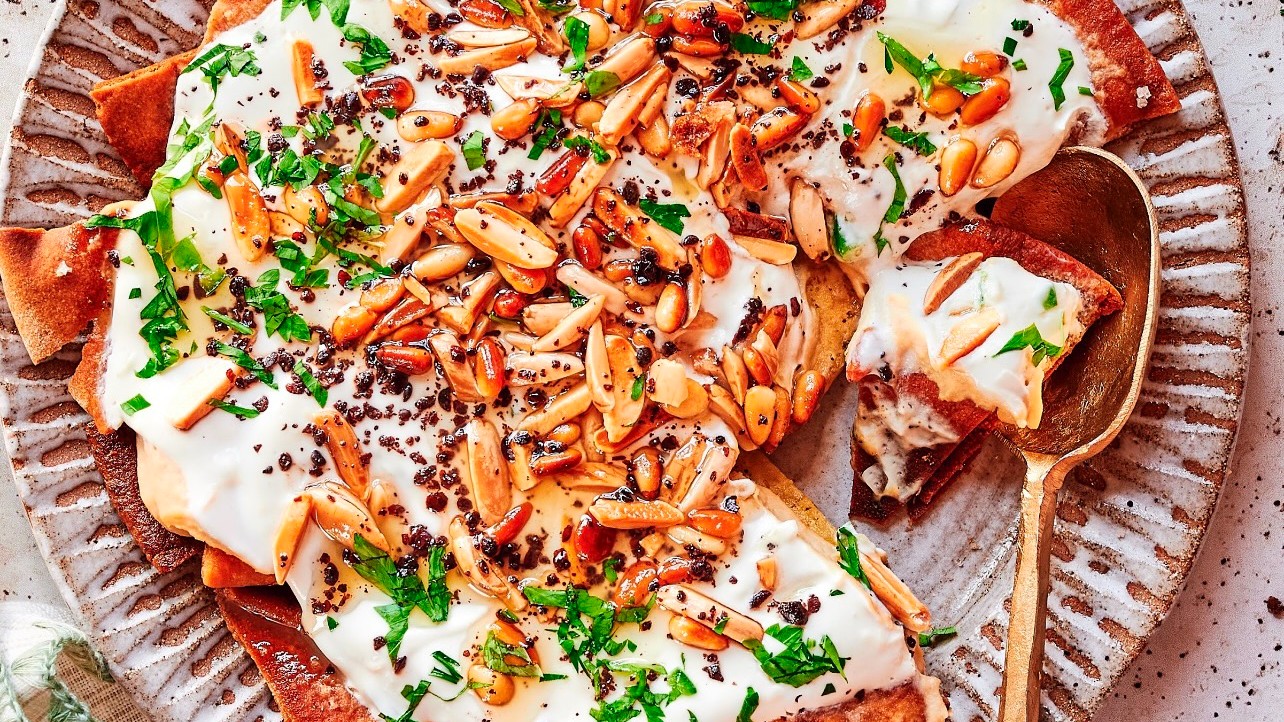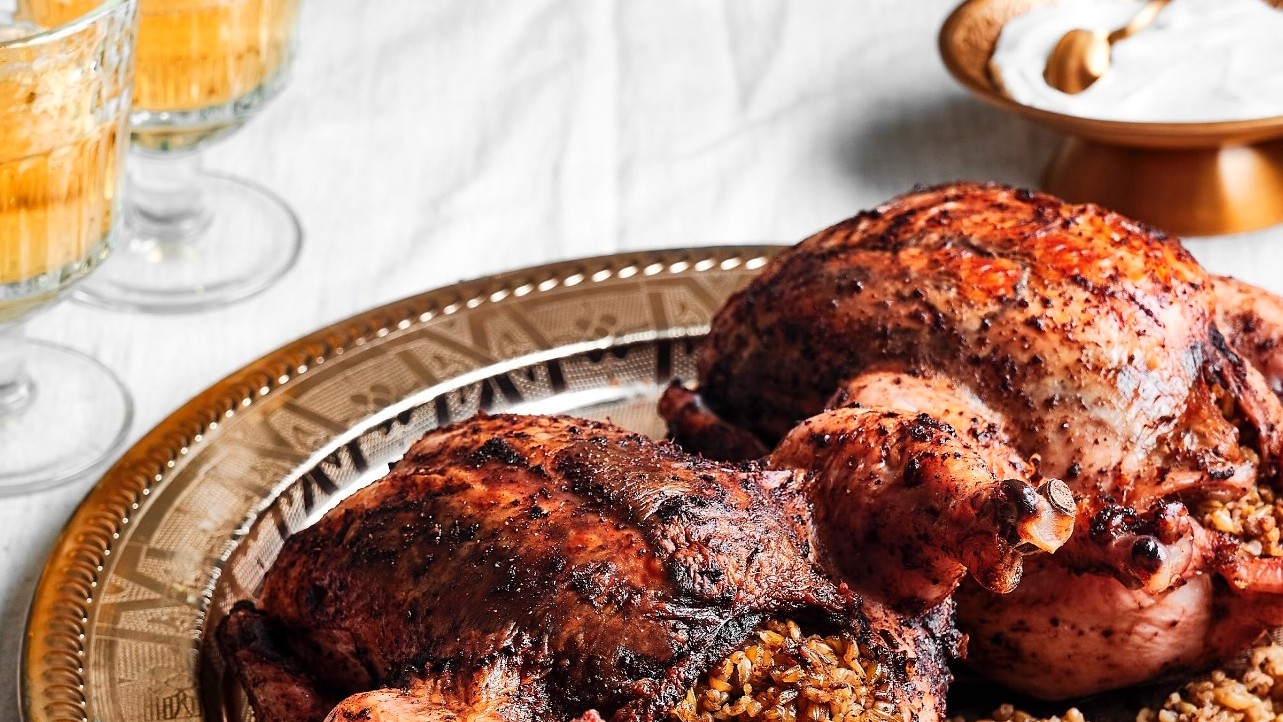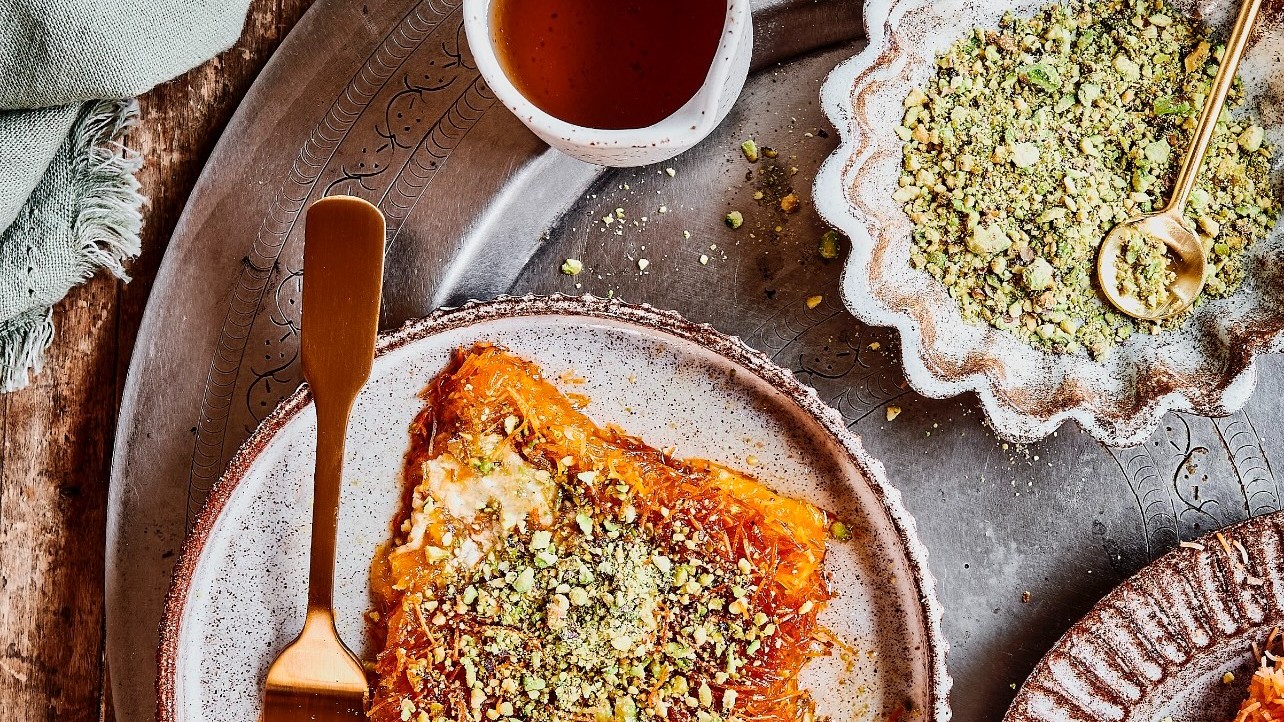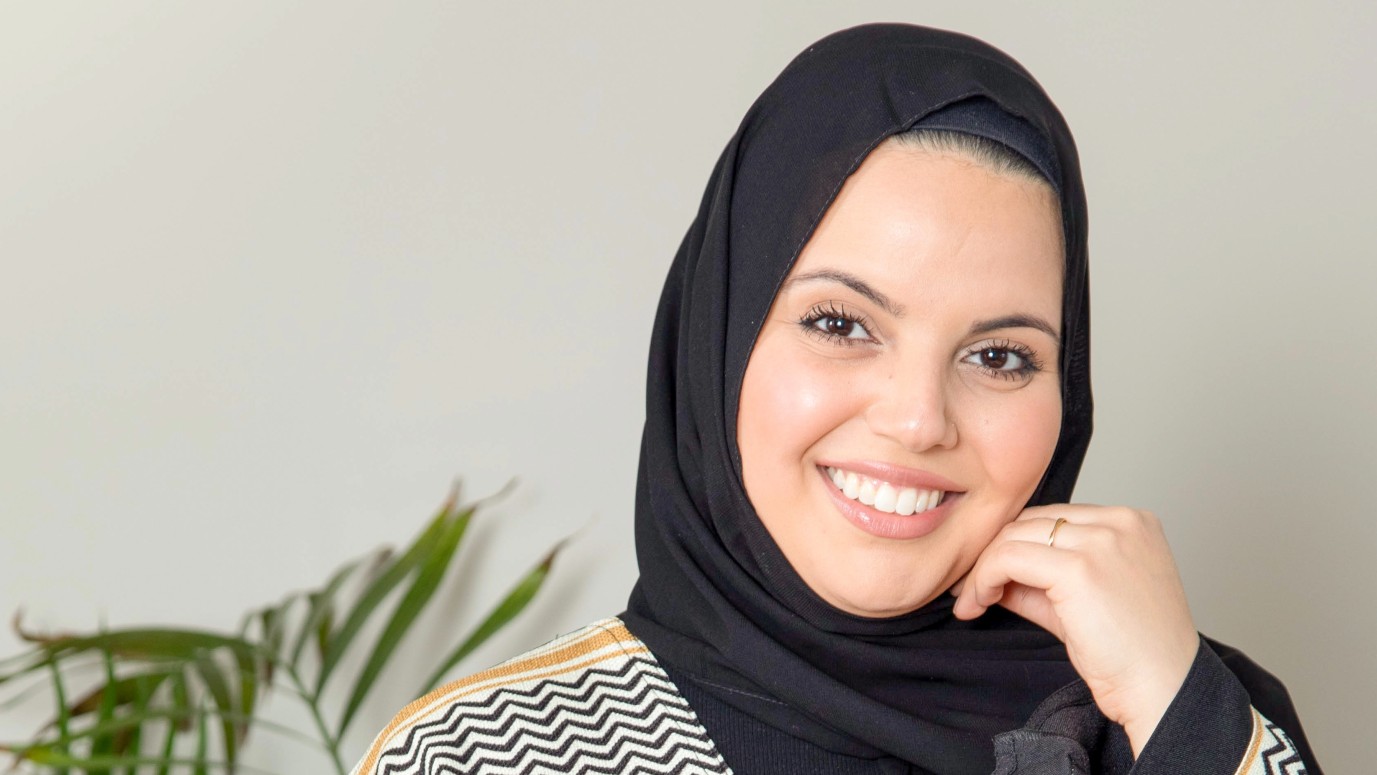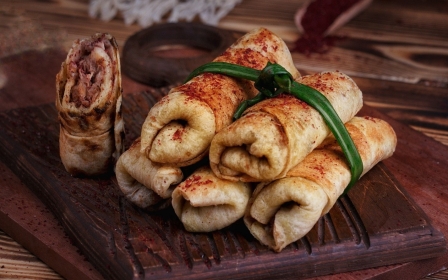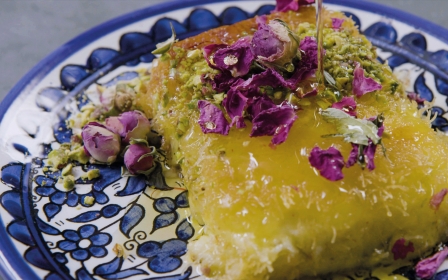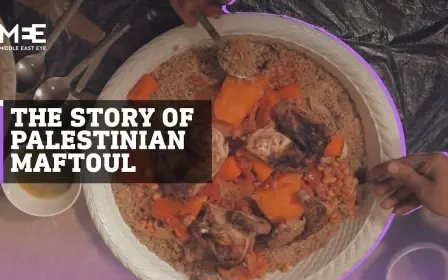Palestinian food blogger Heifa Odeh on her culinary roots and cultural 'resilience'
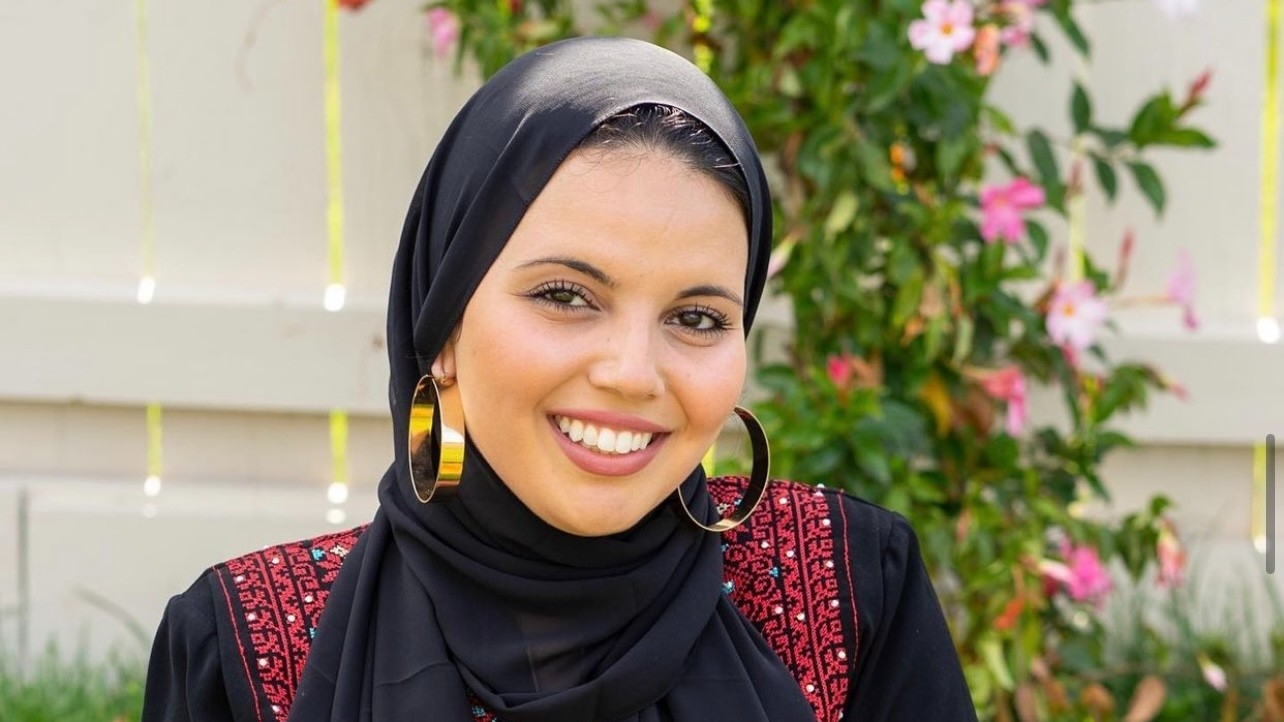
More than 90,000 people follow chef Heifa Odeh on Instagram, eagerly awaiting the next traditional Palestinian recipe to drop on her page.
The Palestinian-American from New Jersey has created a community of food lovers and aspiring cooks online, and also gives audiences an insight into what constitutes authentic Palestinian cuisine.
New MEE newsletter: Jerusalem Dispatch
Sign up to get the latest insights and analysis on Israel-Palestine, alongside Turkey Unpacked and other MEE newsletters
Her photos and videos on the platform are vibrant, colourful, and make you want to get up and head straight to the kitchen in an attempt to recreate them.
Odeh won a Saveur Magazine award in 2019 for Best Food Culture Blog, which she described as a "wow moment" and a source of pride.
On her blog, she has recipes for both traditional Palestinian dishes, which have been passed down through the family for generations, as well as her own twists on classics.
Some popular dishes on her blog include qidrah, a garlic chickpea rice and lamb dish, musakhan, the national dish of Palestine, as well as desserts like date scones and ma'amoul coffee cake.
Off the back of her online profile, Odeh has released her own recipe book, Dine in Palestine: An Authentic Taste of Palestine in 60 Recipes from My Family to Your Table, which is released in September.
Cooking journey
Odeh, a first-generation Palestinian American, was raised in New Jersey but now lives in Chicago with her husband and son.
She was inspired to cook when her parents took her back to Palestine and Jordan during the summer holidays, giving her an opportunity to absorb her family’s culture and language. As she grew older, she watched her mother - whom she describes as a "phenomenal cook" - whisk and knead away with real passion in the kitchen, drawing positive reactions from everyone who tasted her food.
“I started shadowing her in the kitchen in my early teens and tried to soak in as much as possible. I would do the same during the summer with my grandmothers and aunts," Odeh told Middle East Eye.
"Food fascinates me in so many ways. The way it brings everyone together and brings joy is just beautiful.”
At 15, Odeh got her first job at a local bakery, where she learned more about the art of being a chef, as well as making pastries. The experience only amplified her love for cooking.
When Odeh got married in her mid-20s, and moved to a different state to be with her husband, she had a sudden longing for her mother’s food. As the days went by, she craved traditional Palestinian home-cooked meals, including dawali, makloubeh and knafeh. This prompted her to start a blog, Fufu’s Kitchen, where she shares recipes that she grew up with, in the hope that she can inspire others like her.
Preserving Palestinian identity through food
Nevertheless, for Odeh, cooking Palestinian dishes holds a far deeper meaning than simply sharing recipes online - every recipe is about her sense of being Palestinian.
“I take the most pride in these recipes. Preserving them is very important to me and my identity,” she explains. “In general, my cooking is inspired by my environment. I grew up in a Palestinian household where on Sundays we had a spread for breakfast, from labneh to zeit wa zaatar (olive oil and thyme), galayet bandoora (a sauteed tomato stew with garlic and onion), fresh baked goods, mint tea and more. Makloubeh and dawali were often on the dinner menu, too.”
Many of the ingredients and flavours Odeh uses in her cooking are inspired by the fragrance, colours and scents of Palestine. This includes Palestinian staples such as olive oil, Yafa oranges and pomegranate molasses.
She did not learn how to perfect these fragrant dishes overnight. The process took years of observing her mother in the kitchen, video calls, failed attempts and one-on-one practice sessions in order to be able to make the dishes as authentic as possible. But she says the effort is worth it, as it serves a greater purpose.
“The people of Palestine inspire me daily, with their resilience and love for their land and all it has to offer. They are so humble and make the best out of what they are dealt with. They push me to do better and be better, and use my platform to bring awareness of Palestine. It is one of the reasons I am proud of this cookbook.”
Odeh's work comes amid an important moment for the Palestinian struggle, where open advocacy of Palestinian rights is still viewed with suspicion in some quarters, but at the same time, criticism of Israeli abuses of Palestinians is becoming more mainstream.
When she was first approached to produce a book, her publishers suggested a project rooted in the wider Middle Eastern or Mediterranean culture. Odeh, however, insisted on one specifically centred on Palestinians.
“I let the publishing company know that I would only be interested in writing a Palestinian cookbook; a book I identify with. After looking into it more, they were open to the idea and welcomed it,” she said.
"I wanted the word Palestine to be front and centre, so people know that we are here and we are proud. Honestly, so much is done daily to erase our existence. Our land, our food, our culture."
Dine in Palestine by Heifa Odeh is published by Page Street Publishing and is available for pre-order at a number of retailers
Middle East Eye delivers independent and unrivalled coverage and analysis of the Middle East, North Africa and beyond. To learn more about republishing this content and the associated fees, please fill out this form. More about MEE can be found here.


